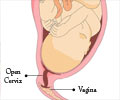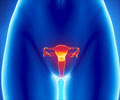Screening for Cancer
A periodic health check is a woman's best bet against Cancer. Regular screening tests can detect cancer right in the beginning and intercepting the cancer early, means a more effective cure and a higher survival rate. While it is advisable that everyone go in for screening examinations regularly, this might not always be possible. But this is a must for people in high-risk groups.
Mammograms
Breast examinations by a qualified medical professional and breast self-examinations (BSE) play an important role in detecting lumps and tumors early on. All lumps need not be cancerous - the doctor can diagnose cancer either through a biopsy or a cytological examination. A biopsy is done by removing part of the tumor, which is then examined by a pathologist to examine whether it is cancerous or not. In a cytological examination, body fluids are examined for cancer cells.
The Pap smear
Is also called the Pap test - named after Dr. George N. Papanicolau, is the most effective advance warning in cases of cervical cancer. It not only detects cancers early but also spots precancerous conditions. The cells shed by the uterus are found in the vaginal fluid. These cells carry telltale signs of cancer or precancerous conditions. Examining a sample of the vaginal fluid helps identify abnormal cells, if any. In this procedure a few cells are scraped off the cervix, put on a microscope slide, dyed and examined.
Annual pelvic examinations
where the doctor feels the internal sex organs, bladder and rectum for abnormalities - can help spot endometrial cancer.
Once the cancer is detected, a whole lot of tests, like blood tests and X-rays, are done to check out the person's state of health and whether the cancer has spread to other parts of the body. Procedures like isotope scanning give a glimpse of inner organs and the stage of the cancer. Once the details of the cancer have been charted out, the doctor can decide on the right course of treatment.
















